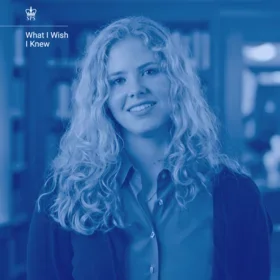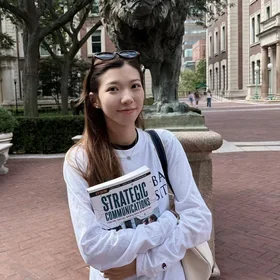Written by JR Low, M.S. in Sports Management student
I worked for Sport Singapore, the national agency for sporting development in Singapore, the past 5 years, and had been involved in event operations, strategy development, and organization transformation. Previously, I spent 12 years in the IT sector in roles spanning consulting, business development, marketing, and IT operations. While this breadth of experience gave me a good base of knowledge and skills, I found that I lacked the industry knowledge in sports business to help me in my work and felt that attending a Sports Management program would provide me with the knowledge and networks that I need.
I was attracted to Columbia University’s Sports Management program for the broad and rigorous curriculum and the opportunity to immerse myself in the biggest sports market in the world.
- Broad and rigorous curriculum – The range of coursework is relevant to my learning needs, including business decision making and governance in sports, technology innovation and digital sports media, and sports analytics. There is also access to finance and management coursework from other Columbia academic programs
- Immersion in the world’s biggest sports market – New York City is the sports capital of the world with multiple professional sports franchises, league offices, media companies, and sports venues located here, serving both US and International sports organizations. We have access to a whole range of sports events and conferences and most of our faculty are either current or recently retired sports professionals from the biggest sports properties in the world.
The Sports Management program been exceptional both in and out of the classroom. In the classroom, our faculty bring a wealth of up-to-date industry experience as well as a range of guest speakers from all across the sports world.
I think I have averaged 3 to 5 guest speakers per class so far, not including the professor and teaching assistant, most of whom also hold active roles in the industry themselves. Outside the classroom, we have access to a constant stream of events and networking opportunities offered by the Sports Management program, Career Design Lab, Columbia University, and the Sports Industry itself. The opportunities are endless and are readily available to anyone willing to seek them out.
Some of the skills I’ve sharpened include critical thinking, pattern recognition, negotiation, data analysis and visualization, legal analysis, innovation, and business/venture financing. However, I would say the most important thing is “learning how to learn” within the sports business context: which leagues and franchises to pay attention to; which industry publications and thought leaders to follow; where to look for sports market data; what associations and forums to join; and how to build and maintain networks in the industry. I believe these skills will continue to serve me long after I graduate from the program.
I think my professional background made it both easier and harder for me to decide to enroll in this program. On one hand, having so many years of working experience made me aware of what strengths I had and also what capabilities I lacked. I knew I needed to pick up deeper sports industry knowledge as well as commercial and financial skills to advance to the next phase of my career. On the other hand, I was at a stage of my career where time away from work is also an opportunity cost. Stepping out to pursue a full-time Masters in Sports Management is a significant time commitment and I had to give up certain projects I was working on or planning to start. Having said that, coming here has been one of the best decisions I made as I know it will prepare me well for the next lap of the journey.
My favorite part of the program must be the community that we have built within the Sports Management family. I’ve made some really good friends from all over the world and it’s been wonderful to share in this experience together with both my cohort and the rich alumni base.
Thanks to the efforts of the faculty and student leaders from SMAC (Sports Management Association of Columbia), I’ve had a lot of fun getting to know my classmates and alumni. From picnics at Central Park to intramural basketball competitions to drinks at Amity Hall and the countless number of live sport event experiences at some the best venues in the world, it has been a blast.
Columbia University is a world-class institution because of the quality of the people. The faculty cares deeply about our learning and is always willing to help in any way they can. I know I won’t be able to do justice to all my professors with the limited space here but I wanted to share two stories.
Professor Bill Squires taught me Sports Facilities and Events Management in Fall 2019 and he was masterful in designing the classroom experience. He had a wealth of experience from his time with the New York Yankees and New York Giants to share, he brought in guest speakers to talk about different pieces of the venue operations puzzle almost every week, and he allowed each of us to become an expert for a major sports facility as we took turns to share our venue's special features with our classmates each week. The highlight of the course was the venue operations assessment where we got to shadow a team member of the MetLife Stadium crew during a New York Giants home game. Everyone at MetLife Stadium knew Bill and we had full access to touch, feel and learn about how an NFL game day works. Most of all, he cared about our learning, giving us detailed feedback for every assignment and checking in with us constantly to ask how he can improve our learning.
Professor Grant Son was another outstanding professor who taught me Sports Entrepreneurship and Innovation in Spring 2020. He also brought a wealth of experience from his previous roles as a sports entrepreneur and a lecturer at the Columbia Business School and he designed his classes around case studies of actual sports businesses and start-ups. He helped us learn from one another by grouping us with different classmates for our weekly assignments and brought in actual business problems from entrepreneurs and venture capitalists for our hands-on project work through the second half of the course. Along with all our other professors and teaching assistants, he redesigned the class for online instruction in response to the Covid-19 situation without missing a beat. Most of all, he made time to meet each of us one-to-one multiple times throughout the semester and we had long insightful discussions on the sports entrepreneurship world as well as career development beyond class.
There are many other stories of professors, alumni, and fellow students from unique backgrounds who are generous with their time and ready to advise on classes and share lessons from their own experience in the industry. It's truly the quality of the people that makes this program special and #InALeagueOfOurOwn.
Editor's Note: Updates (January 24, 2024)
- Low is Senior Director, Future Systems, Singapore Sport Institute
- He is responsible for exploiting technology and building a long-term strategy for Singapore’s high-performance sport system. He implements a data and technology masterplan to support Team Singapore athletes and coaches in achieving their training and competition goals
- Sport Singapore is a statutory board of the Ministry of Culture, Community, and Youth. Their core purpose is to inspire the Singapore spirit and transform Singapore through sport.


